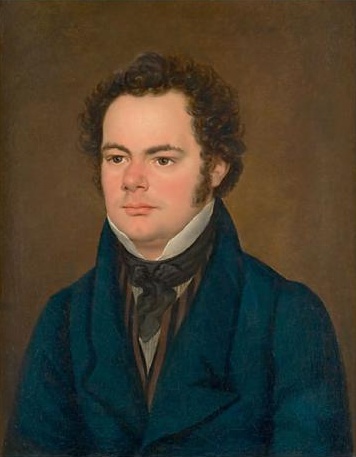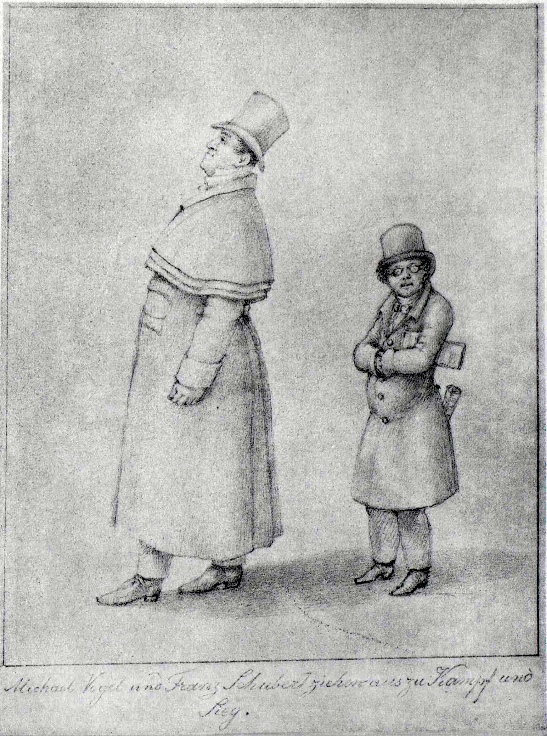|
Smile! (Vitas Album)
Smile! (Улыбнись!, Ulybnis!) is a Russian album by Vitas (Витас), released on 11 March 2002. Several songs from this album featured in his ''Philosophy of Miracle'' concert programme, whose performance at the Kremlin earned Vitas a record as the youngest artist to perform a solo concert at the State Kremlin Palace;WikiMusicGuide a DVD of this concert was later released. Release The title track won the Russian Golden Gramophone and People's Hit awards. "Good-bye" was released as a single, which included 5 different mixes of the song, the tracks "Ave Maria" and "Byelorussia", and the music video for "Opera #1" from his previous album '' Philosophy of Miracle''. "Good-bye" is notable for Vitas' e ...[...More Info...] [...Related Items...] OR: [Wikipedia] [Google] [Baidu] |
Vitas
Vitaliy Vladasovich Grachev or Vitaliy Vladasovych Grachov, known professionally as Vitas ( ; stylised in all caps), is a Russian– Ukrainian singer. Vitas is known for his falsetto and his eclectic musical style, which incorporates elements of operatic pop, techno, dance, classical, jazz, and folk. Vitas became popular in Russia and other Eastern European countries in the early 2000s and also achieved success in Asia, including China, in 2005. He won the ZD Awards and participated in many Russian and European music festivals, including the festival “Christmas Meetings of Alla Pugacheva” and others. He performed in a duet with Demis Roussos and Lucio Dalla. Much of his recognition outside Russia and Asia came in the 2010s, when songs such as "Opera #2" and "The 7th Element" (both from his 2001 debut album '' Philosophy of Miracle'') and "Smile!" (from his 2002 album of the same name) achieved viral success; the unusual music videos for "Opera #2" and "The 7th Ele ... [...More Info...] [...Related Items...] OR: [Wikipedia] [Google] [Baidu] |
Philosophy Of Miracle
''Philosophy of Miracle'' () is the debut album by Russian singer Vitas, released on 10 May 2001. It is sometimes translated as ''Philosophy of a Miracle'', ''Philosophy of Wonder'', or ''Wonders of Philosophy''. All the songs were written or co-written by Vitas, with the exception of "Prelude" by Dmitri Plachkovsky. The album was recorded with many backing musicians including the Vienna Symphony Orchestra.Article source: Neon magazine issues 2 & 4, Feb-Mar 2001 (Russian) Release ''Neon'' () magazine described the album as "fresh, original, new and therefore interesting". The album received widespread popularity in mid-2015 after "The 7th Element" (often[...More Info...] [...Related Items...] OR: [Wikipedia] [Google] [Baidu] |
Mama (Vitas Album)
''Mama'' (''Мама'', sometimes translated ''Mother'' or ''Mom'') is a Russian language, Russian album by Vitas, released on 3 October 2003 through Iceberg Music. Background Songs from this album featured heavily in the setlist of Vitas' extensive world tour ''Songs of My Mother'' (Песни моей мамы), premiered at the :ru:Государственный центральный концертный зал «Россия», State Central Concert Hall "Rossiya" in November 1st and November 2, 2nd, 2003, and performed at hundreds of venues in several countries from 2004 to 2006.Press release The opening track, ''The Star'' (''Звезда'') won a Russian People's HIT prize in 2003 and is one of Vitas' most popular songs worldwide. Like ''Opera No. 2'' (''Опера №2''), it is still a stapl ... [...More Info...] [...Related Items...] OR: [Wikipedia] [Google] [Baidu] |
Russian Language
Russian is an East Slavic languages, East Slavic language belonging to the Balto-Slavic languages, Balto-Slavic branch of the Indo-European languages, Indo-European language family. It is one of the four extant East Slavic languages, and is the native language of the Russians. It was the ''de facto'' and ''de jure'' De facto#National languages, official language of the former Soviet Union.1977 Soviet Constitution, Constitution and Fundamental Law of the Union of Soviet Socialist Republics, 1977: Section II, Chapter 6, Article 36 Russian has remained an official language of the Russia, Russian Federation, Belarus, Kazakhstan, Kyrgyzstan, and Tajikistan, and is still commonly used as a lingua franca in Ukraine, Moldova, the Caucasus, Central Asia, and to a lesser extent in the Baltic states and Russian language in Israel, Israel. Russian has over 253 million total speakers worldwide. It is the List of languages by number of speakers in Europe, most spoken native language in Eur ... [...More Info...] [...Related Items...] OR: [Wikipedia] [Google] [Baidu] |
InterMedia (agency)
Intermedia is an art theory term coined in the mid-1960s by Fluxus artist Dick Higgins to describe the strategies of interdisciplinarity that occur within artworks existing between artistic genres. It was also used by John Brockman to refer to works in expanded cinema that were associated with Jonas Mekas' Film-Makers’ Cinematheque. Gene Youngblood also described intermedia, beginning in his ''Intermedia'' column for the Los Angeles Free Press beginning in 1967 as a part of a global network of multiple media that was expanding consciousness. Youngblood gathered and expanded upon intermedia ideas from this series of columns in his 1970 book '' Expanded Cinema'', with an introduction by Buckminster Fuller. Over the years, intermedia has been used almost interchangeably with multi-media and more recently with the categories of digital media, technoetics, electronic media and post-conceptualism. Characteristics The areas such as those between drawing and poetry, or between pa ... [...More Info...] [...Related Items...] OR: [Wikipedia] [Google] [Baidu] |
State Kremlin Palace
The State Kremlin Palace (), previously and unofficially known as the Kremlin Palace of Congresses (Кремлёвский дворец съездов), is a large modern building inside the Moscow Kremlin. History The building was built at the initiative of Nikita Khrushchev as a modern arena for Communist Party meetings. The building replaced several heritage buildings, including the old neo-classical building of the Kremlin Armoury, State Armoury, and some of the back corpuses of the Great Kremlin Palace. This, and that the architecture of the projected building contrasted with the historic milieu resulted in quite an uproar, particularly after other historic buildings of the Kremlin, such as the Chudov Monastery, Chudov and Ascension Convent, Ascension cloisters, had already been demolished during the Stalin era and laws, that were introduced by the mid-1950s, prohibited the demolition of historic structures, making the construction in some ways illegal. The construction wo ... [...More Info...] [...Related Items...] OR: [Wikipedia] [Google] [Baidu] |
Ellens Dritter Gesang
"" ("", Otto Erich Deutsch, D. 839, Opus number, Op. 52, No. 6, 1825), in English: "Ellen's Third Song", was composed by Franz Schubert in 1825 as part of his Op. 52, a setting of seven songs from Walter Scott's 1810 popular narrative poem ''The Lady of the Lake (poem), The Lady of the Lake'', loosely translated into German. It is one of Schubert's most popular works. Beyond the song as originally composed by Schubert, it is often performed and recorded by many singers under the title "Ave Maria" (the Latin name of the prayer Hail Mary, and also the opening words and refrain of Ellen's song, a song which is itself a prayer to the Mary, mother of Jesus, Virgin Mary), in musically simplified arrangements and with various lyrics that commonly differ from the original context of the poem. It was Arrangement, arranged in Transcriptions by Franz Liszt#Franz Schubert, three versions for piano by Franz Liszt. ''The Lady of the Lake'' and the "Ave Maria" The piece was composed as a setti ... [...More Info...] [...Related Items...] OR: [Wikipedia] [Google] [Baidu] |
Franz Schubert
Franz Peter Schubert (; ; 31 January 179719 November 1828) was an Austrian composer of the late Classical period (music), Classical and early Romantic music, Romantic eras. Despite his short life, Schubert left behind a List of compositions by Franz Schubert, vast ''oeuvre'', including more than 600 ''Lieder'' (art songs in German) and other vocal works, seven complete symphonies, sacred music, operas, incidental music, and a large body of piano and chamber music. His major works include "Erlkönig (Schubert), Erlkönig", "Gretchen am Spinnrade", and "Ave Maria (Schubert), Ave Maria"; the Trout Quintet, ''Trout'' Quintet; the Symphony No. 8 (Schubert), Symphony No. 8 in B minor (''Unfinished''); the Symphony No. 9 (Schubert), Symphony No. 9 in C major (''Great''); the String Quartet No. 14 (Schubert), String Quartet No. 14 in D minor (''Death and the Maiden''); the String Quintet (Schubert), String Quintet in C major; the Impromptus (Schubert), Impromptus for solo piano; the S ... [...More Info...] [...Related Items...] OR: [Wikipedia] [Google] [Baidu] |
Alexandra Pakhmutova
Aleksandra Nikolayevna Pakhmutova ( ; born 9 November 1929) is a Soviet and Russian composer. She has remained one of the best-known figures in Soviet and later Russian popular music since she first achieved fame in her homeland in the 1960s. She was awarded the People's Artist of the USSR in 1984. Biography She was born on November 9, 1929, in Beketovka (now a neighborhood in Volgograd), Russian SFSR, Soviet Union, and began playing the piano and composing music at an early age. In 1936, she entered the Stalingrad City Music School. After the German invasion of the Soviet Union, she briefly went to Karaganda for refuge and study. She was admitted to the prestigious Moscow Conservatory and graduated in 1953. In 1956, she completed a post-graduate course led by composer Vissarion Shebalin. Her career is notable for her success in a range of different genres. She has composed pieces for the symphony orchestra (The Russian Suite, the concerto for the trumpet and the orchestra, ... [...More Info...] [...Related Items...] OR: [Wikipedia] [Google] [Baidu] |


